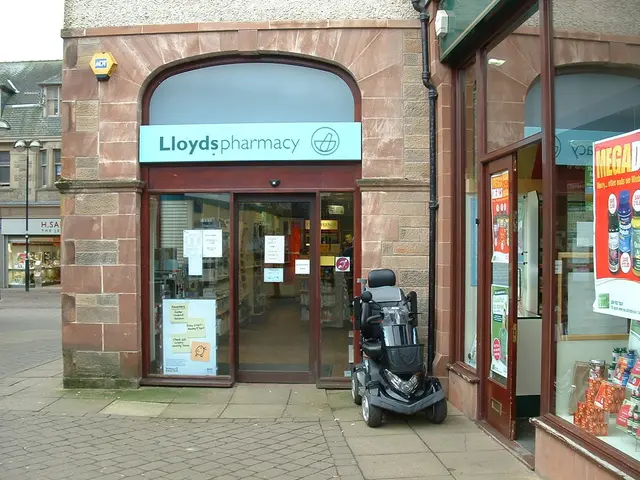Prescription costs in England's National Health Service (NHS) remain unchanged for the first time in three years.
Frozen: NHS Prescription Charges Won't Hike For Third Year Straight
In a relieving move for millions, the NHS prescription charges in England will continue to not increase from their current price of £9.90 — marking the third consecutive year without an increase, the government declared. This decision is expected to offer £18 million in savings for patients.
On a related note, the cost for a three-month prescription prepayment certificate (PPC) will stay put at £32.05, while the 12-month PPC will remain at £114.50.
This announcement arrives as residents of England prepare for local council elections on the coming Thursday. Health Secretary Wes Streeting expressed, "Our pledge to fix the NHS is a long journey, but by collaborating hand-in-hand with our pharmacies, we're saving money and shifting care to the neighborhood, ensuring it's more accessible near your home."
The last time these charges were frozen was in 2022, under Boris Johnson's Conservative government, as a measure to help citizens grapple with inflating living costs. Approximately 89% of prescriptions in England are currently given away for free, including to children, the elderly, expectant mothers, and individuals diagnosed with specific conditions.
The History of Prescription Charges
Prescription charges in the National Health Service (NHS) England, first instituted in the 1950s, were introduced to offset funding requirements. Through the years, prices have stepped up to accommodate inflation and funding needs, but inconsistencies in fairness, particularly for minimal-income patients and those dealing with chronic illnesses, has sparked controversy.
This latest move is considered a temporary measure, with many healthcare professionals and organizations advocating for the complete abolition of these charges. They argue that these charges put a strain on healthcare access for some patients, fueling additional doctor visits and hospital admissions due to untreated conditions. Critics propose examples from Wales, Scotland, and Northern Ireland where prescriptions are free.
On the other hand, pharmacists welcome the freeze but also express their concerns regarding the administrative burden linked to managing these charges. They often witness patients struggling to afford their medications and advocate for the scrapping of these charges to improve patient care and slash administrative costs.
Overall, the freeze on prescription charges is seen as a positive advancement towards managing healthcare costs, but it's only a piece of the larger puzzle concerning the long-term future of healthcare funding in England.
- The freeze on prescription charges in 2025, similar to the three-year consecutive freeze, may provide relief for millions in England, just as it did in the previous years.
- As the cost of living rises, science and health-and-wellness initiatives become even more crucial, especially in relation to nutrition and medicare, to ensure accessible and affordable healthcare for all.
- The ongoing debate about the National Health Service (NHS) prescription charges focuses on their fairness, particularly towards minimal-income patients and those dealing with chronic illnesses, much like the controversy that started in the 1950s.
- Although the current system provides free prescriptions for certain demographics, such as children, the elderly, expectant mothers, and individuals diagnosed with specific conditions, healthcare professionals and organizations continue to advocate for the complete abolition of these charges.
- Pharmacists support the freeze on prescription charges but also highlight the administrative burden associated with managing these charges, which could be alleviated by the complete scrapping of these charges for improved patient care and cost savings.







